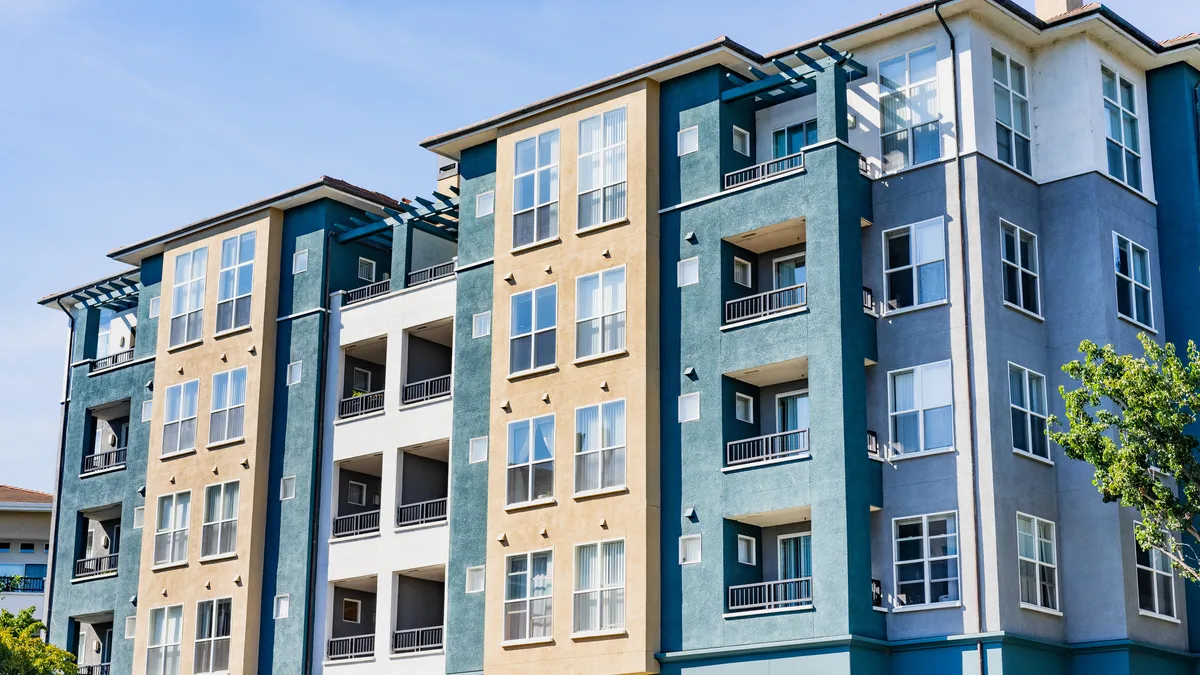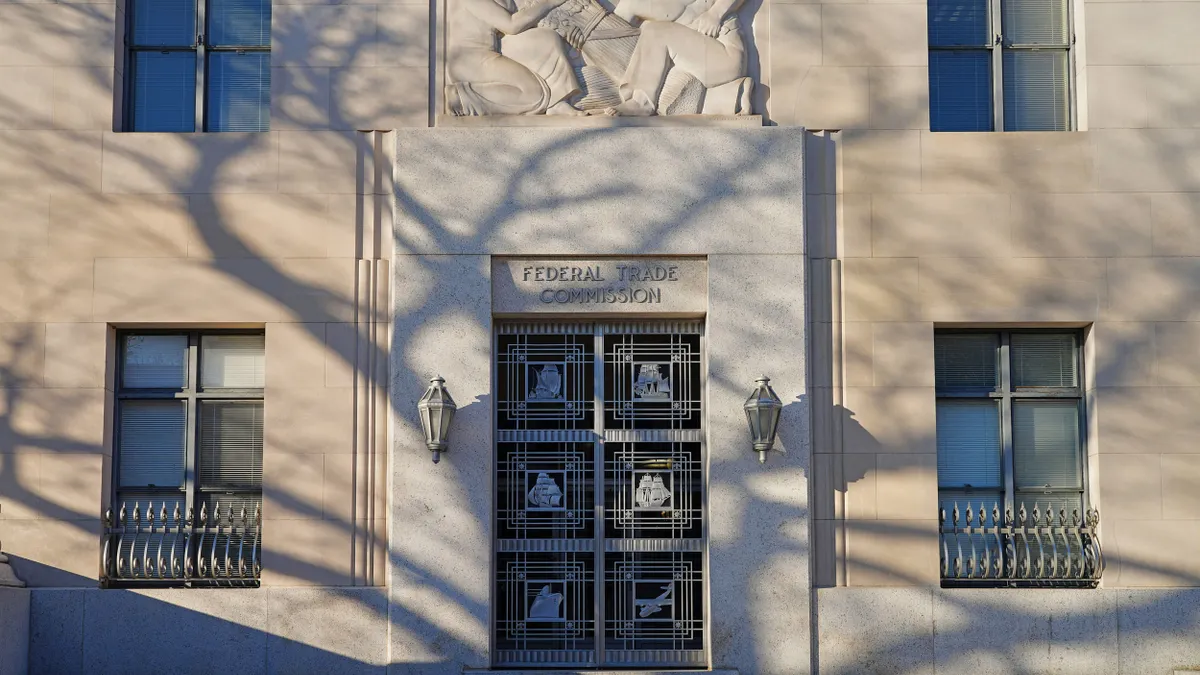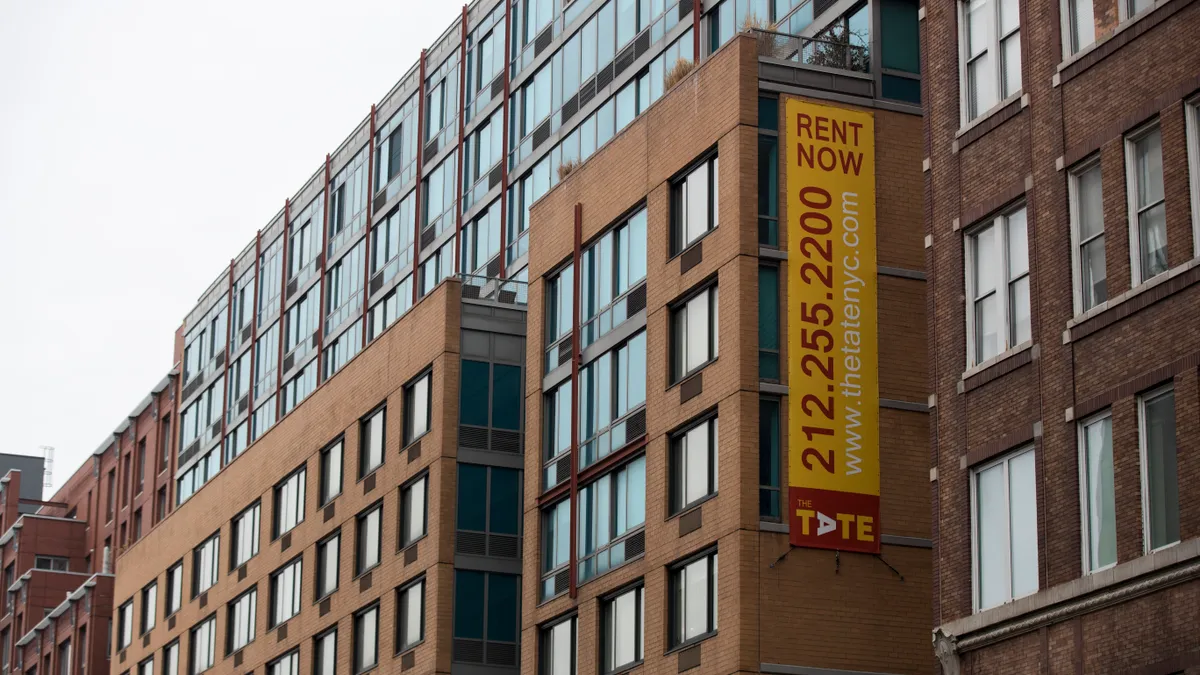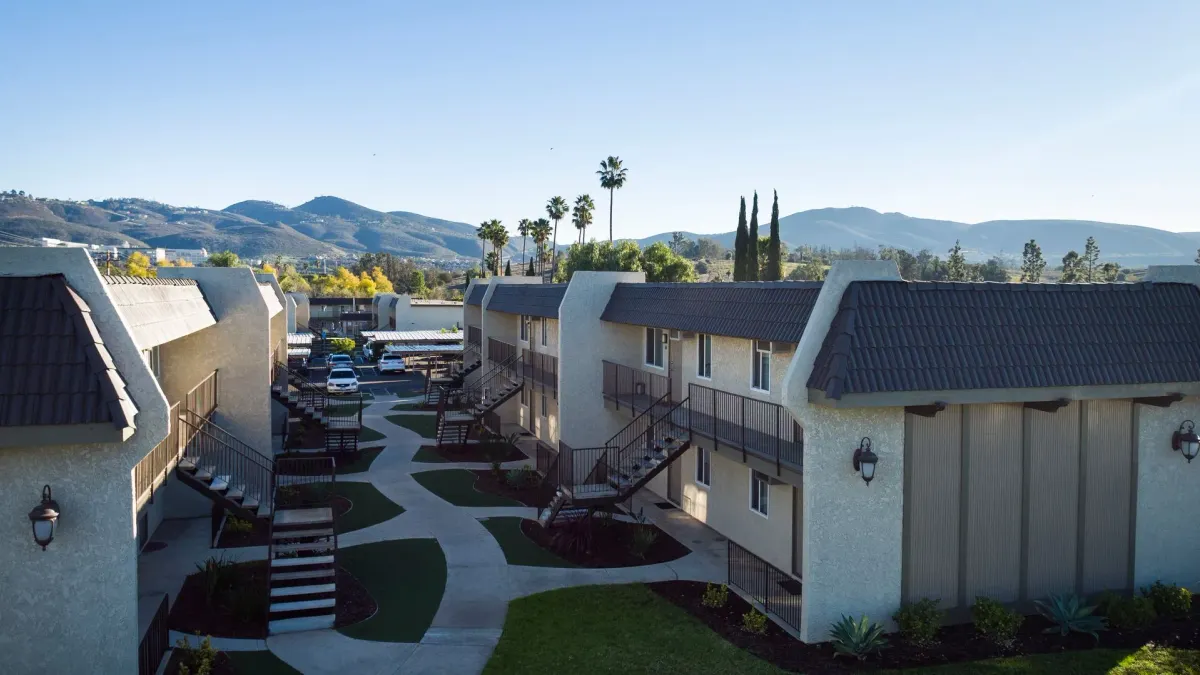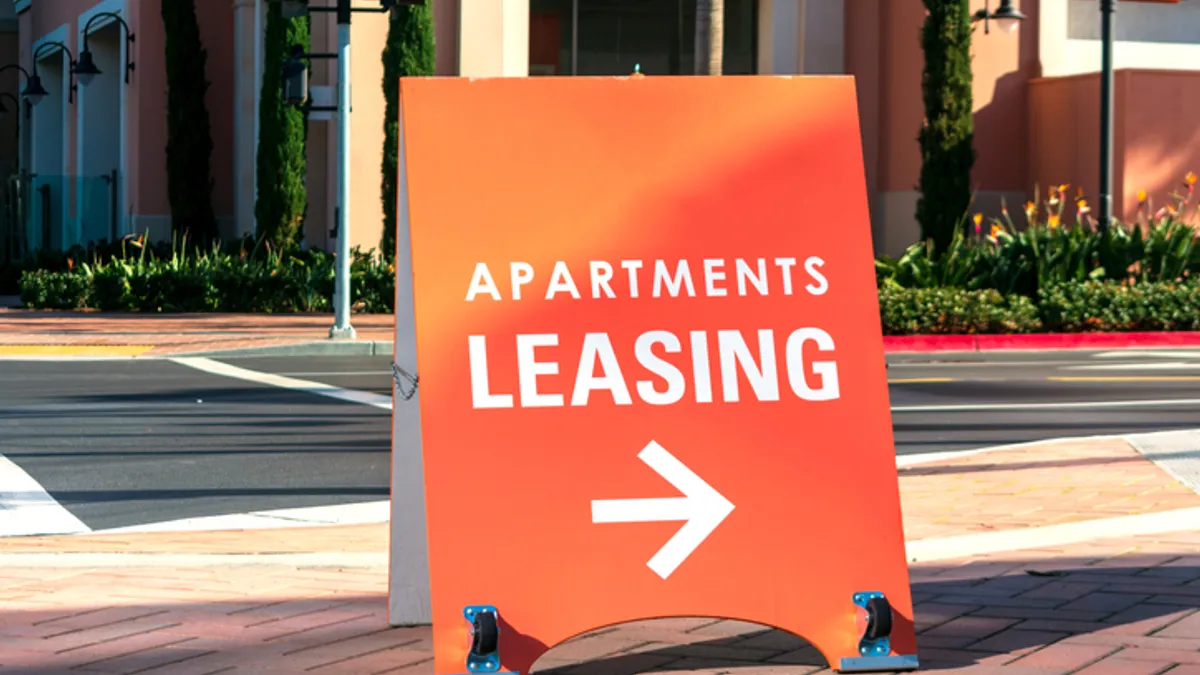In June, renters signing new leases paid 19.2% more on average than the units’ previous occupants, while renters renewing their leases saw rents rise by an average of 11.2%, according to a RealPage report on new lease trade-outs.
While these numbers indicate that rent growth is proceeding at an incredibly high rate, Jay Parsons, vice president, head of economics and industry principals for RealPage, anticipates that growth may be hitting its peak. He notes in his report that June marks the first month in 2022 where trade-out rent growth didn’t jump significantly from one month to the next, and that trade-out rent growth has fallen from earlier this year in 26 of the top 50 metros in the country.
Multifamily Dive talked with Parsons at Apartmentalize 2022, held last month in San Diego, to talk about recent trends in the multifamily market including rent movements, past and future growth and whether or not the industry can sustain its current trajectory.
This interview has been edited for brevity and clarity.

MULTIFAMILY DIVE: What is the difference between rent cooling and rent leveling off?
JAY PARSONS: Well, it's a little bit of semantics. I think that a lot of times you hear about rent cooling, you're thinking about rents actually going down. That's not really what's happening. I like the word moderating. Saying that rent growth is moderating or will be moderating. We're seeing that in some parts of the country.
In most of the country it's not happening yet, but I think as we get into the second half of the year, we're going to see the rent growth levels that are at record right now are going to moderate. They're not going to be negative. It's not going to just disappear, but we're going to see moderating rent growth.
The growth level will be coming down, but not the actual rent. It would take a massive change in events for that to happen.
Do you see this monumental rate of rent growth as sustainable? What do you think the near future holds?
No, I don't think it's sustainable. The record numbers are never sustainable. Going into this year, we expected to see rent growth levels moderate in the second half of 2022. Six, seven months ago, we didn't know exactly why that would be — now we just know more about why. I mean, inflation is obviously a big deal.
We’re seeing that that's starting to cause some slowdown, and obviously [also in] new home purchases with rising rates. We've seen now some layoffs in the tech sector, and so there's some signs that inflation is having an impact on the broader economy.
And I think what we're going to see is just that we've reached a point where we can't keep growing at these levels. I think it's all going to push toward some moderation.
Would you say 2021 marked a peak for rent growth?
Well, we were peaking in May of this year, [when] rent growth actually was higher than last year. So I think we're still trending upward. But, again, I think we're at an inflection point now.
There were a lot of views that we would see a big dropoff in rent growth in 2022. That was never our view. So we continue to see acceleration through the first part of the year.
Last year, what happened was that rents really started to pop in the second quarter. And now as you get into the second quarter of this year, it's still a lot of older, cheaper leases that are turning, so the growth rate looks higher. But you can't maintain that growth rate forever, especially as you turn that unit [to] a second or third lease. It gets harder to grow at that same rate.
What are some other trends you’re seeing in the multifamily market?
Right now everyone's looking at the market really closely, trying to see a sign of a slowdown. It's not happening yet. But I think the thing to really watch for is the dreaded stagflation scenario.
One big driver of rent growth the last couple of years has been wage growth. There's been a lot of wage growth among renters. If that goes away, but we still see costs for food and gas, everything else going up, that's going to be a really challenging scenario for renters. I think in that situation we would see more renters doubling up, which would be a reversal of trends we've seen in last couple of years, since COVID-19, [where] people have gone off to their own places.
I think we would see new lease demand come down, we'd see vacancy go up and that would really change the outlook much faster. But as long as wage growth continues, I think the overall market is going to remain strong. But just, again, moderating from the levels we see right now.
I [also] think one of the things we'll see is that — in our industry, everyone kind of spends money on a 12-month subscription to advertise. And as you start to pare back on expenses, we're going to see more targeted digital spending, websites, SEO…. I think the more targeted [apartment marketing] can be fascinating, [and] that topic's not getting enough attention in trade media.


